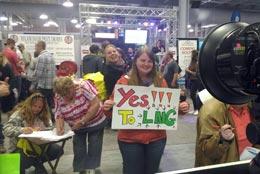Let's get on with saying yes to LNG

Guest Commentary
By Barinder Rasode
While most of the world is embracing natural gas as a beneficial fuel that reduces air pollution and slows climate change, we can’t overlook voices here at home who say that British Columbia should do everything possible to leave our gas reserves in the ground.
These critics prefer to conjure up a world where wind farms, banks of solar panels and electricity generated through hydroelectric sources magically provide all of society’s energy needs.
Alas, that world does not exist.
In reality, Trudeau government officials say the nation’s natural gas production will increase 22% in coming years, with LNG “an important driver” of that growth.
I have to admit that as a mother of three, watching American documentaries condemning fracking (a method of extracting natural gas from the ground) did cause me concern. But I’ve learned that manufacturing solar panels comes at an environmental cost, as do wind turbines.
Solar panels use quartz, which is refined into metallurgical-grade silicon using giant coal fired furnaces. This work is increasingly being done in China to take advantage of cheap labour and lax environmental regulations.
Wind generators fares little better. The impact on bird life is well known, but did you know wind turbines require coal to be burned and the mining of rare earth minerals by children in developing countries?
Every source of energy production comes with an environmental price.
As for natural gas, fracking has been done safely in Canada’s highly regulated environment for many years.
There are so many good reasons to support natural gas and LNG in B.C. Here are just a few of them that I have verified:
British Columbia’s vast reserves of “sweet” gas in the Montney Basin are among the lowest in CO2 anywhere in the world.
The new provincial Greenhouse Gas Industrial Reporting and Control Act (GGIRCA) ensures that LNG facilities in British Columbia will have an emissions cap making them the cleanest in the world.
Despite complicated and confusing explanations to the contrary that some lobby groups put forward, the truth of the matter is very simple: we need to use more clean fuels and fewer dirty fuels, and that means more natural gas.
First Nations leaders I’ve been listening to are demanding access to better services and they are sick and tired of “administering poverty,” as one chief told me. LNG revenues and jobs will help them get there.
LNG tankers are not floating bombs, despite what some groups have been claiming. There is no credible evidence whatsoever behind that claim: LNG would not have a safe shipping record dating to 1959 if it were otherwise. In an accident situation, LNG would just evaporate, it cannot explode.
Metro Vancouver residents flush more potable water down their toilets in one day than the B.C. natural gas drilling industry uses in one year. The B.C. Supreme Court has ruled that water in B.C.’s northeast (where the natural gas is) is being used responsibly.
In British Columbia we are already witnessing a low-carbon energy transition thanks to natural gas. Long-haul diesel trucks, ships, ferries and even mining vehicles are all moving toward LNG power.
Thanks to its natural gas, British Columbia is building a cleaner, more diversified economy and leading the country in economic growth.
That’s why I have come to the conclusion that so long as good regulations are on the books and enforced, we should all be proud to use and ship natural gas.
It’s the compassionate, responsible thing to do.









